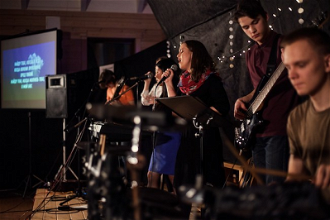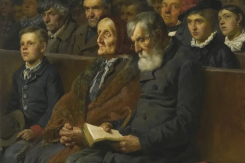Disability group alarmed at RCN change of policy on assisted suicide

Alison Davis
No Less Human (NLH), a disability rights group, has expressed great alarm at yesterday's news that the Royal College of Nursing (RCN) has moved from opposing assisted suicide to taking a neutral stance on the issue.
Alison Davis, national coordinator of NLH, who has spina bifida, hydrocephalus and other disabling conditions, and is a full time wheelchair user commented: "As a group for disabled people, their families and carers, many of us have reason to remember with gratitude and affection the care and treatment given us from nurses, both in the past and currently.
"However, the RCN's shift from opposition to neutrality on assisted suicide sends out to disabled people and their supporters a very subtle but worrying message that we are not now as safe in the care of our nurses as we once were.
"This is true for me personally. In the past I felt able to implicitly trust my nurses, particularly at a time I remember well some years ago when I had a settled wish to die that lasted over ten years.
"Then I recall with much gratitude the care I received from one particular nurse who refused to accept my view that I was 'better off dead' and encouraged me to regain a will to live.
"Now I will no longer be able to trust my nurses so implicitly. I will have to wonder what his/her view is on the 'worth' and 'benefit' of my life, and whether they would support any decision I might make to ask for their 'assistance' in committing suicide.
"It is a terrifying thought, made worse by the knowledge that if Debbie Purdy were to win her case (asking clarification from the Director of Public Prosecutions to publish a policy of when he will or will not prosecute suicide 'assistants') it would be but a short step to allowing nurses to 'assist' suicides in this country.
"NLH strongly urges the RCN to revert to its position, held since 2004, of opposition to assisted suicide, which can only work against the right of sick and disabled people to equal treatment."
All pro-life organisations have echoed this view. Paul Tully, general secretary of the Society for the Protection of the Unborn Child, (SPUC), said: "Assisting or encouraging a person to commit suicide is a criminal offence. It is irresponsible for a professional body of carers to adopt a posture that helping a person to commit suicide is a reasonable thing to do.
"When suicide ceased to be a crime in 1961, it was made clear by the government that the change was not intended to give any sense of moral approval to suicide. It was from a motive of compassion to families and to survivors of suicide attempts.
"In recent years media coverage of suicide has been distorted by an intensive focus on a tiny handful of untypical cases selected by the pro-euthanasia lobby. While these cases are presented as reasonable people - often terminally ill - doing a reasonable thing, over 5,000 tragic suicides are reported by the Office for National Statistics each year. Typically these are young men (aged 15-44) and are often depressed or emotionally disturbed - but not terminally ill.
"The RCN's Council have based their change on a consultation exercise in which only a fraction of one percent of their members took part. They clearly have no mandate from nurses as a whole for this move," concluded Mr Tully.


















